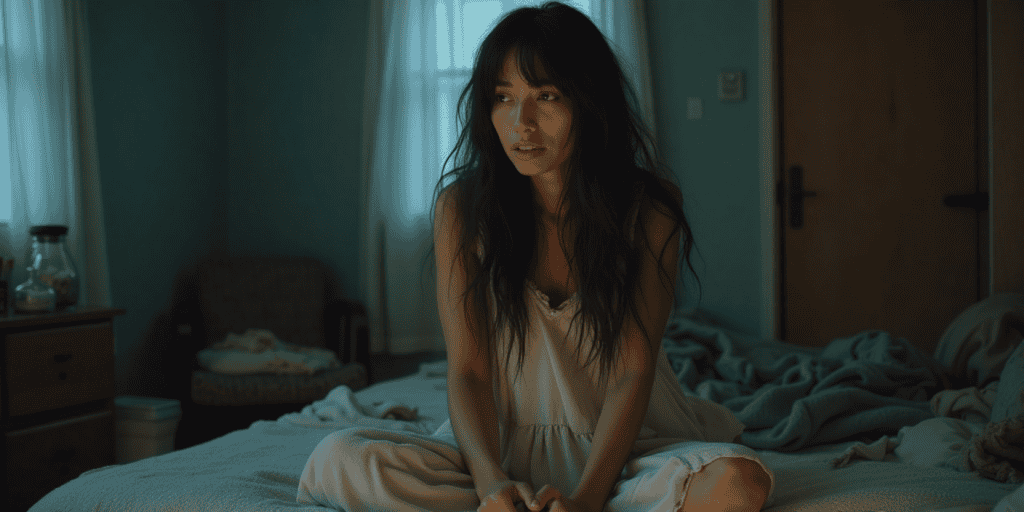After I cut ties with my narcissistic family, I thought I was healing.
I journaled every day. Meditated every morning. Read every book about “finding inner peace.”
On the outside, I looked like a damn healing poster child.
But inside? I still flinched when I heard my phone buzz.
I still replay arguments from years ago.
I still caught myself wondering if maybe, just maybe, I was too sensitive like they always said.
The truth hit me one night, sitting next to my husband on the couch watching tv:
I wasn’t healing. I was surviving differently.
All my “healthy” habits were just new ways of stuffing down the pain my family taught me to deny.
If you’re doing everything “right” but still feel stuck, it’s not because you’re broken.
It’s because real healing isn’t about doing more.
It’s about facing the hurt they taught you to bury.
Today, I want to show these healthy habits that 95% of survivors did after cutting off narcissists from their lives that are actually harmful.
Table of Contents
5 Harmful Coping Habits That Are Toxic After Narcissistic Abuse
While helping survivors to create a better life after cutting narcissists, what I see is that 95% of them do during their healing process, that was when I realized I need to share my thoughts on these coping habits that I was once guilty of as well.
So, if you’re in the process of rebuilding after narcissistic abuse, stay away from the 5 harmful habits that most things are actually healthy because they are not.
1. Journaling Every Feeling Without Moving Forward

After cutting ties with my toxic family, journaling became my lifeline.
Every night, I would sit at my kitchen table, pouring my heart out onto the page, every insult, every betrayal, every conversation I wished had gone differently.
It felt cathartic at first.
Like I was finally unloading years of toxic baggage they left sitting on my chest.
But months later, I realized something brutal:
I was writing about the same pain over and over.
Same wounds. Same anger. Same heartbreak, just different words.
Journaling wasn’t healing me anymore. It was keeping me trapped in their story.
I was reliving every slight, every dismissal, every “you’re too sensitive” moment they threw at me growing up, without ever closing the chapter.
It became a ritual of recycling my pain instead of releasing it.
And here’s what hit me hardest: You can’t move forward if you’re only documenting the past.
Journaling is powerful… when it leads somewhere.
But if all you’re doing is bleeding on the page without rebuilding yourself afterward, you’re not healing.
You’re reliving.
What finally shifted for me was changing what I wrote about.
Instead of obsessing over what they did to me, I started writing about what I wanted for myself.
Not just the pain I was escaping, but the peace I was building.
And that’s when real healing started.
2. Forgiving Too Soon (Because You Think You “Should”)

For the longest time, I thought forgiveness was the finish line of healing.
Everything I read and everyone around me kept saying, “You’ll feel better once you forgive them.”
So I tried.
- I tried to forgive my mother for dismissing my feelings every time I cried.
- I tried to forgive my sister for betraying my trust the first chance she got.
- I tried to forgive the relatives who watched it all happen and said nothing.
- I told myself I was “taking the high road.”
- I said all the right things “I forgive them for me, not for them.”
But inside? I still felt raw. Bitter. Exhausted.
Because the truth was, I wasn’t ready to forgive.
- I hadn’t even let myself fully grieve yet.
- I hadn’t acknowledged how deeply the damage ran.
- I was trying to skip the ugly, necessary work of facing the hurt, and paint over it with forgiveness I hadn’t earned for myself yet.
Here’s what I had to learn the hard way: You can’t force forgiveness.
And you don’t owe it to anyone to speed up your healing timeline.
Forgiveness is not a checkbox you tick off because it’s “what good people do.”
It’s a byproduct of real healing, not a shortcut to avoid it.
Once I stopped pressuring myself to forgive before I was truly ready, I finally gave myself permission to feel angry, betrayed, disappointed, and human.
And strangely enough? That’s when peace started showing up. Not because I forced it. Because I finally honored what I had survived.
3. Meditating Your Anger Away

After the fallout with my dysfunctional family, I did what every “good” healing guide said to do, I started meditating.
Every morning or evening, I’d sit on the floor, close my eyes, and try to “release” the anger boiling inside me.
I told myself, “You need to rise above it. Be calm. Be peaceful.”
And for a while, it worked… or so I thought.
- I’d breathe through the memories of my narcissistic mother gaslighting me.
- I’d try to find compassion for my toxic older sister’s backstabbing betrayal.
- I’d repeat mantras like, “They did the best they could.”
But then a random conversation would trigger me, and boom. All that anger I tried so hard to “breathe away” came roaring back, twice as loud.
Because here’s the ugly truth: You can’t meditate your way out of real anger.
Meditation can calm your nervous system, but it doesn’t erase betrayal. It doesn’t undo the years of being blamed for someone else’s cruelty.
It doesn’t fix the rage that’s screaming to be acknowledged, not silenced.
When I used meditation to bypass my anger, I wasn’t healing.
I was gaslighting myself the same way my family had done for years.
Real healing started when I stopped shaming my anger and started listening to it.
Anger wasn’t proof that I was bitter or broken. It was proof that something inside me still knew I deserved better and had been deeply wronged.
I stopped trying to silence my fire. And I started using it to rebuild my boundaries, my confidence, and my damn life.
4. Consuming Endless Self-Help Content Without Applying It

There was a stretch of time after I cut off my toxic family where I thought the answer was more information.
- I devoured every book on healing, trauma, boundaries, you name it.
- I binged podcasts about narcissistic abuse.
- I took notes, highlighted passages, and even printed out affirmations to stick on my mirror.
It felt good, productive, even.
But deep down, nothing was actually changing.
- I was still replaying old arguments with my mother in my head.
- I was still feeling guilty for saying “no” to toxic family gatherings.
- I was still waking up with that heavy pit of self-doubt in my chest.
Because here’s what no one tells you: You can’t read your way out of trauma.
I wasn’t healing. I was intellectualizing my pain, getting smarter about it, but never sitting with it long enough to truly move through it.
Learning felt safer than feeling. Planning felt safer than grieving.
Taking another course felt safer than enforcing a boundary and risking real fallout. Self-help became another way to stay busy without getting better.
What changed everything was when I stopped cramming my brain with more advice and started applying the basics:
- Say no without apologizing.
- Feel anger without shaming myself.
- Honor my boundaries even when I get lonely.
No podcast could do that for me. No book could walk that road for me.
At some point, you have to stop studying healing and start living it.
And that’s where everything finally shifted.
5. Staying “Peaceful” by Ghosting Your Own Needs

After years of drama with my narcissistic family, all I wanted was peace.
Real, quiet, no-walking-on-eggshells peace.
So I thought if I just stayed calm, avoided conflict, and kept my mouth shut, I’d finally get there.
When my mother made her passive-aggressive comments, I smiled and let it slide.
When my sister threw little jabs at family gatherings, I laughed it off.
When relatives crossed my boundaries, I bit my tongue so hard it almost bled.
I kept telling myself, “It’s not worth the fight. Stay peaceful. Be the bigger person.”
But the longer I stayed silent, the angrier and lonelier I became.
Because here’s the brutal truth: Silencing yourself for peace isn’t healing. It’s self-abandonment.
- I wasn’t creating peace.
- I was ghosting my own needs.
- I was still making my family’s comfort more important than my own truth, just in a quieter way.
The worst part? I started feeling invisible in my own damn life. Real peace isn’t about avoiding conflict at all costs.
It’s about creating a life where you don’t have to swallow your needs just to keep everyone else comfortable.
It took me a long time and a lot of painful lessons to realize that peace without self-respect is just a prettier prison.
The day I finally spoke up without apologizing was the day I started building a life that actually felt free.
Not because everyone liked it. But because I finally liked myself enough to stop ghosting who I really was.
The Moment I Realized Healing Wasn’t About Being “Good”

For most of my life, being “good” was survival.
- Good daughter. Good sister.
- Good family member.
- Good meant agreeable. Quiet. Forgiving.
- Tolerant, even when it hurt like hell.
So when I started my healing journey, I carried that same mindset with me.
- Be positive.
- Be understanding.
- Be peaceful at all costs.
- But the deeper I went, the heavier it felt.
I was doing everything “right,” and yet I still felt like I was drowning under years of betrayal, guilt, and silent anger.
The real turning point came on an ordinary Tuesday afternoon.
I was journaling (again), writing out yet another list of ways I could be “better”, more forgiving, more patient, more spiritual, when it hit me like a freight train:
I wasn’t healing. I was performing.
I was trying to earn healing by being “good enough” for people who would never see me clearly, no matter what I did.
That realization cracked something open inside me. Healing wasn’t about being good.
- It was about being real.
- It was about grieving what happened without minimizing it.
- It was about letting myself be messy, angry, heartbroken, and still worthy of love and peace.
The second I dropped the performance, I started rebuilding a life that actually belonged to me.
Not a life they would approve of. Not a life polished for outsiders.
A life where my needs, my boundaries, and my voice mattered without apology.
And that’s when my real healing finally began.
Quick Recap and Key Takeaway
Healing after narcissistic abuse isn’t about doing more “good” things.
It’s about facing the hard truths most people run from.
Endless journaling, forced forgiveness, silencing your anger, bingeing on self-help content, or ghosting your own needs won’t set you free.
They’ll just keep you performing healing instead of living it.
Real healing starts the moment you stop trying to be perfect… and start honoring everything you survived.
You don’t need another coping strategy. You need to stop running from your own voice and start trusting it again.
That’s when everything finally changes.
Final Thoughts: Healing Is About Coming Home to Yourself.
For a long time, I thought healing meant fixing myself.
I thought if I journaled enough, forgave fast enough, meditated perfectly, and read every self-help book in sight, I’d finally feel free.
But healing isn’t about hustling harder. It’s about coming home to yourself.
It’s about stopping the endless search for another answer outside of you, and finally trusting that your anger, grief, and truth were never the problem.
If reading this hit a little too close to home, it’s because you’re ready for a different kind of healing… the real kind.
That’s why I created The Next Chapter.
It’s a step-by-step healing roadmap for survivors who are done just surviving and ready to build a life that feels peaceful, powerful, and free, without needing closure, permission, or constant emotional battles.
Inside, I’ll help you:
- Stop recycling the pain
- Rebuild your confidence
- Set boundaries that actually work
- Create a future that doesn’t include them
You’re not too broken to heal. You’re just too powerful to stay stuck. And The Next Chapter is where that new life begins.
Related Posts:
- How I Rebuilt My Life After Narcissistic Abuse (Without Getting Closure)?
- 20 Phrases I Wish I’d Heard Sooner After Dealing With a Narcissist
- If You Don’t Fix This After Leaving a Narcissist, You’ll Keep Breaking Down
- How To Stay Consistent In Your Healing After Narcissistic Abuse
- 7 Stages of Narcissistic Abuse Recovery: Are You There Yet?


